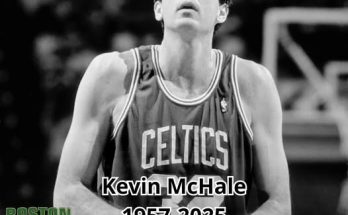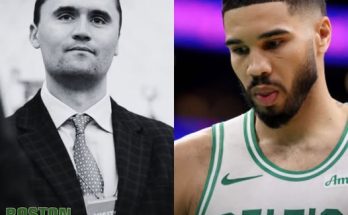Nginyu Ngala’s decision to commit to the University of Kansas marks a significant development for both the storied basketball program and the emerging Canadian guard himself. Standing at 5-foot-10, Ngala might not possess the prototypical size of a high-major NCAA guard, but what he lacks in height, he more than makes up for with his exceptional shot-making ability, high basketball IQ, and relentless work ethic. A native of Ontario, Canada, Ngala enters Jayhawk Nation having turned heads north of the border with his lights-out shooting and versatile offensive game. He averaged 14.9 points per game last season at his university in Ontario, with a sharp 39.2% success rate from beyond the arc—an indicator that Kansas may have found a gem in an under-the-radar Canadian prospect.
The significance of Ngala’s commitment cannot be overstated. For Bill Self and the Kansas coaching staff, recruiting a player like Ngala demonstrates their continued emphasis on stretching the floor and adding perimeter scoring—an area that has become increasingly important in the modern college basketball landscape. In recent years, Self has been known for adapting his system around the talents of his players, and in Ngala, he acquires a player capable of instantly impacting spacing and forcing defenses to account for his shooting gravity. As defenses grow more sophisticated and more compact inside, having reliable marksmen on the outside is crucial. Ngala’s numbers from three-point range are not just impressive—they’re elite, especially when contextualized within the Canadian university circuit, which has been producing higher levels of talent year after year.
Ngala’s path to Kansas also underscores the widening scope of college basketball recruiting. No longer are elite American programs solely fishing from high school and AAU programs within U.S. borders; there is now a strong presence in international scouting. Canada, in particular, has rapidly evolved into one of the most fertile recruiting grounds in the world. From Jamal Murray to Shai Gilgeous-Alexander, the country has produced an astonishing wave of talent, and Kansas appears to be betting that Ngala will be the next breakout star to follow in that tradition. The coaching staff clearly did their homework, and Ngala’s efficient scoring, unselfish play, and mental toughness likely stood out in hours of film and evaluations. While he may not have had the exposure of some U.S. prep players, the game tape speaks volumes. He’s a shot creator with a quick release, able to shoot off the dribble and in catch-and-shoot situations—two hallmarks of a mature, dangerous scorer.
It’s also worth noting that Ngala’s commitment comes at a time of heightened expectations for the Kansas program. The Jayhawks are entering another pivotal season, with title aspirations and a deep, talented roster. In this context, Ngala’s role could be both supportive and catalytic. While it’s unlikely he’s being recruited to be a Day One starter, Kansas has shown in the past how much they value guards who can come off the bench, stretch the floor, and change the tempo of the game. Think of players like Devonte’ Graham and Remy Martin who, at different points in their careers, elevated the Jayhawks with their outside shooting and dynamic offensive spark. Ngala fits into that lineage in his own way, though perhaps with an even more refined jump shot at this early stage.
For Ngala, joining Kansas represents both an opportunity and a challenge. The opportunity lies in joining one of the most respected and successful programs in college basketball history—a program with a rabid fan base, a long list of NBA alumni, and a winning culture that demands excellence. But the challenge is equally real. Ngala will be competing against other high-level guards for minutes, and he’ll have to prove that his success in Ontario can translate to the pace, physicality, and complexity of Big 12 basketball. That said, by committing to Kansas, Ngala is signaling that he’s not shying away from competition—he’s running straight into it. And for a player of his makeup and mental toughness, that’s often when they perform best.
His ability to carve out a role will likely hinge on how quickly he can adapt to the speed and physicality of NCAA Division I basketball. Standing at 5’10”, he will face taller, longer, and more athletic defenders than ever before. But if there’s one thing that translates regardless of level, it’s shot-making. Ngala’s shooting mechanics are clean and repeatable, and his confidence from deep has been evident throughout his development. If he can establish himself as a reliable perimeter threat early, that alone will make it hard for Coach Self to keep him off the floor. Additionally, Ngala’s scoring average of 14.9 points per game suggests that he can be more than a specialist. He can attack closeouts, make plays in transition, and find teammates with smart passes. He’s not a one-dimensional player; he’s a guard who understands the flow of the game and knows how to get buckets without forcing the issue.
Ngala’s development under Bill Self’s tutelage could be significant. Self has built a reputation not just as a winning coach but as a developer of talent. Guards in his system have often emerged more polished and more ready for the next level, be it the NBA or overseas. If Ngala can absorb the teaching, accept the challenge, and grind through the early adjustment period, he could find himself becoming a fan favorite at Allen Fieldhouse in no time. The KU fans love tough, skilled, underdog-type players who prove themselves through grit and consistency. Ngala’s background, traveling from Canada and stepping into one of college basketball’s premier programs, aligns perfectly with that narrative. His journey is unique, and fans will surely rally behind him if he brings the same energy, efficiency, and fire that he showed back home.
Another layer to consider is the broader cultural and recruiting impact of Ngala’s arrival in Lawrence. For Kansas, landing a player of Ngala’s caliber out of Canada could open the floodgates for more international commitments, particularly from a country that has been thriving in grassroots basketball. Canadian basketball has been on an incredible upswing, not just in terms of raw talent, but also in the sophistication of its coaching, the infrastructure of its club teams, and the exposure of its top players to high-level competition. By tapping into that market, Kansas sends a clear message to prospects and scouts alike: international talent has a place in the Jayhawk system. This could pay dividends in the years ahead, as Kansas continues to look beyond traditional pipelines to sustain its elite status.
Ngala’s personality and approach to the game are also part of what drew Kansas to him. By all accounts, he is a team-first player, someone who leads with effort and keeps his ego in check. That fits seamlessly with the culture Bill Self has built. He demands buy-in from all his players, no matter their role. For a freshman or incoming transfer guard like Ngala, that culture of accountability will be critical to his success. He’ll need to embrace the grind of practices, the challenges of limited minutes early on, and the importance of contributing in small ways before being asked to carry heavier offensive loads. It’s that humility and discipline, combined with his undeniable talent, that give him a legitimate shot at carving out a meaningful career at Kansas.
It’s also worth remembering that Kansas has a history of finding value in players who weren’t necessarily five-star recruits coming in. Frank Mason III was a relatively unheralded guard when he arrived in Lawrence, and he went on to win National Player of the Year. While it’s premature to draw direct comparisons, the essence of that journey—a tough, skilled guard earning every bit of his success—parallels what Ngala is stepping into. There will be growing pains. There always are. But there’s also a ceiling that Ngala can reach if he puts the pieces together.
On a more practical level, Ngala’s commitment could shift the depth chart in interesting ways. His arrival may push returning guards to elevate their games, knowing there’s now another capable scorer on the roster. It may also allow Kansas more flexibility in how they approach rotations and matchups. If Ngala proves to be as effective from long range as his 39.2% clip suggests, then lineups featuring multiple shooters could stretch defenses and create better driving lanes for more athletic wings and bigs. He adds another tool to the coaching staff’s kit—one they can deploy strategically in games where perimeter shooting is at a premium.
The reception to Ngala’s commitment has already been enthusiastic, particularly among Kansas fans who closely follow recruiting and player development. Social media buzzed with excitement as clips of his highlights circulated, showcasing his smooth shooting stroke, quick handle, and ability to create space off the dribble. The term “sleeper pick-up” has been used repeatedly, and with good reason. He may not have the fanfare of a top-10 recruit, but he brings a skill set that is tailor-made for today’s game and a mindset that could see him exceed expectations.
For Ngala, this moment is the culmination of years of sacrifice, hard work, and faith in his ability. For Kansas, it’s another calculated move in building a balanced and explosive roster. Whether Ngala sees immediate playing time or gradually works his way into the rotation, one thing is certain: his journey to Jayhawk Nation is just beginning, and all eyes will be on how the Canadian sharpshooter adapts, evolves, and thrives under the bright lights of Allen Fieldhouse. The future is unwritten, but for Nginyu Ngala and Kansas, it’s filled with promise.


